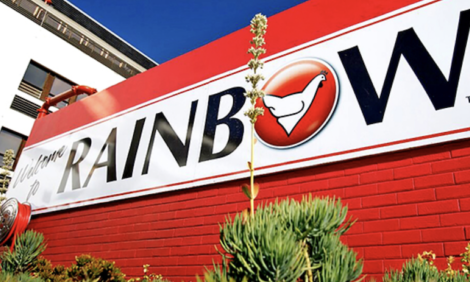



FAPRI Report: Corn Prices Fall Less Than One Per Cent with Full RFS Waiver
US - A full waiver of the Renewable Fuel Standard's (RFS) conventional biofuel requirement might reduce corn prices by just 0.5 per cent ($0.04 per bushel) in 2012/13, according to a new analysis conducted by the Food and Agriculture Policy Research Institute.The Renewable Fuels Association said that the study also found corn ethanol production might slip by just 1.3 per cent with a waiver in 2012/13, while corn available for livestock feed might increase just 0.6 per cent.
Further, the analysis concluded a waiver of the RFS would have no effect on retail beef prices in 2013, and might shave just 1 cent per pound off of retail pork prices.
The Renewable Fuels Association (RFA) said the new FAPRI study adds to the mounting body of evidence showing that a waiver of the RFS would not meaningfully impact feed prices.
"The new FAPRI study is just the latest in a series of recent reports that show waiving the RFS would not have the types of impacts claimed by the livestock groups and grocery manufacturers," said RFA President Bob Dinneen.
"The suggestion that an RFS waiver would significantly bring down feed prices and reduce retail meat prices is absolutely absurd. The only real impacts of a waiver would be to discourage farmers from planting corn next spring and to interrupt and delay important investments in new feedstocks and advanced biofuels technologies.
"Waiving the RFS requirements during the 2012/13 corn marketing year (Sep. 1, 2012 to Aug. 31, 2013) would have 'limited market impact,' FAPRI wrote, adding that '...overall ethanol use and production are projected to be motivated mostly by crop and fuel market conditions in the current marketing year, not the RFS.'
FAPRI analysed the impacts of a full waiver of the RFS on corn prices, corn demand, ethanol output, imports and exports, and numerous other agriculture and biofuel market factors.
The report found a waiver might be expected to reduce corn use for ethanol by just 1.3 per cent in 2012/13 and reduce corn prices from $7.87 per bushel to $7.83 per bushel.
In the following marketing year (2013/14), corn use for ethanol might fall 6.6 per cent and corn prices might decrease 3.2 per cent, FAPRI says. However, the 2013/14 result is based on the questionable assumption that RFS credits (called RINs) would still be generated during the period of a waiver and allowed to roll forward for compliance in 2013/14.
If this assumption is not valid, then a waiver in 2012/13 would actually lead to a $0.06 per bushel increase in corn prices in 2013/14. FAPRI says these results represent an "extreme case" and pointed out that "more modest reductions seem likely" with a partial waiver.
Contrary to the statements from livestock and poultry groups, a waiver of the RFS would not meaningfully increase the amount of corn available for feed use in 2012/13.
FAPRI's results show a waiver results in just 25 million more bushels of corn being fed to livestock, a 0.6 per cent increase over the case where there is no waiver. Notably, it was recently confirmed that livestock operations in the southeastern United States have purchased 30 million bushels of corn imports from Brazil - more than the amount of corn that might become "available" to them domestically via a waiver of the RFS. The FAPRI study also found that supplies of important animal feed co-products generated by the biofuels industry, such as distillers grains, would fall marginally with a waiver and prices would rise.
The report says lower corn prices would lead to slightly lower feed costs for livestock producers "unless offset by slightly higher soybean meal and distillers grain prices.
"The effect of a waiver on retail meat prices is imperceptible, the FAPRI results show. Retail beef prices are projected at $5.30 per pound with or without a waiver of the RFS.
Retail pork prices might be reduced by one penny from $3.59 per pound to $3.58 per pound, a 0.04 per cent reduction.








